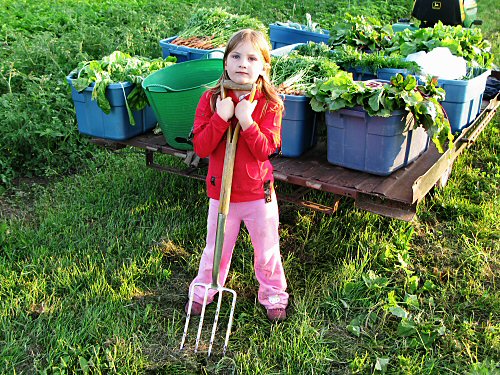Source: Saint Aidan Orthodox Church
Like the beginning of the school year, September marks the beginning of the ecclesiastical (Church) new year. Unlike the secular world, the Church has always followed the pattern of agrarian life, from end of harvest to end of harvest. With all of summer’s bounty collected and stored, the people of antiquity, replenished and replete, would prepare themselves for the beginning of a new growing cycle.
As modern folks, we have mostly lost touch with this natural pattern of time. Faint echoes of it remain to us if we grow gardens, but when it comes right down to it, our survival does not ultimately rest on the rhythm of planting, harvesting, and storing. After all, even if our garden fails to produce, there is always the local grocery store…
And yet some of that ancient rhythm is still very much present in our lives, at least psychologically. We may not harvest literal crops in summer, but we do go on vacations or take things a little easier, growing, gathering and storing our personal resources, so that (ideally), we can arrive at September with our mental and spiritual storehouses refilled to brimming, ready to face the coming months.

September is often a time of decisions. How will we use the resources we have regained and stored up during the summer? What activities will we embark on for the fall, winter and spring? For many, this is a time to sign the kids for soccer or piano lessons, or consider involvement in church or other community activities.
And of course, the temptation every year is to fill our calendar to overflowing. Having received another year of life, we want to use it to its fullest potential, which usually means making ourselves incredibly busy with this or that commitment. We not only “seize the day”; we cram with activity until it has no room left to breathe.
The Eastern Orthodox Church calendar offers an alternate vision to the frenetic pace we so often impose on our year. In the reading prescribed for this coming Sunday, for instance, a wealthy synagogue ruler comes to Jesus and asks, “Good Teacher, what shall I do to inherit eternal life?” Jesus’ response? “One thing you still lack. Sell all that you have and distribute to the poor, and you will have treasure in heaven; and come, follow me.” (Luke 18)
Like the rest of us approaching a new year with our stock of resources overflowing, the ruler wonders how can he invest and multiply his resources in a way that will benefit him the most. Jesus tells him to make do with less. He challenges him to use all his resources to show forth God’s love for the poor ones of the earth, and to foster a greater awareness of and dependence on the One who crowns the year with His bounty and sustains all things with His mighty hand. (see Psalm 65:11)
So perhaps the boldest and most significant decision we can make for the coming year is the decision to do a little less. Other than the absolute necessities, make one or two commitments to benefit people other than ourselves. Then leave lots of time for quiet and silence; for meditation and prayer; for walks after a fresh snowfall; for evenings with a nourishing book far from the “idiot box.” Time to savor everything we have been given, and praise the One who gave it. We come to September with an abundant harvest of time and energy. Let’s make the bounty count for something.

















